Perspectives with: Bryan, Meshach and Hernan
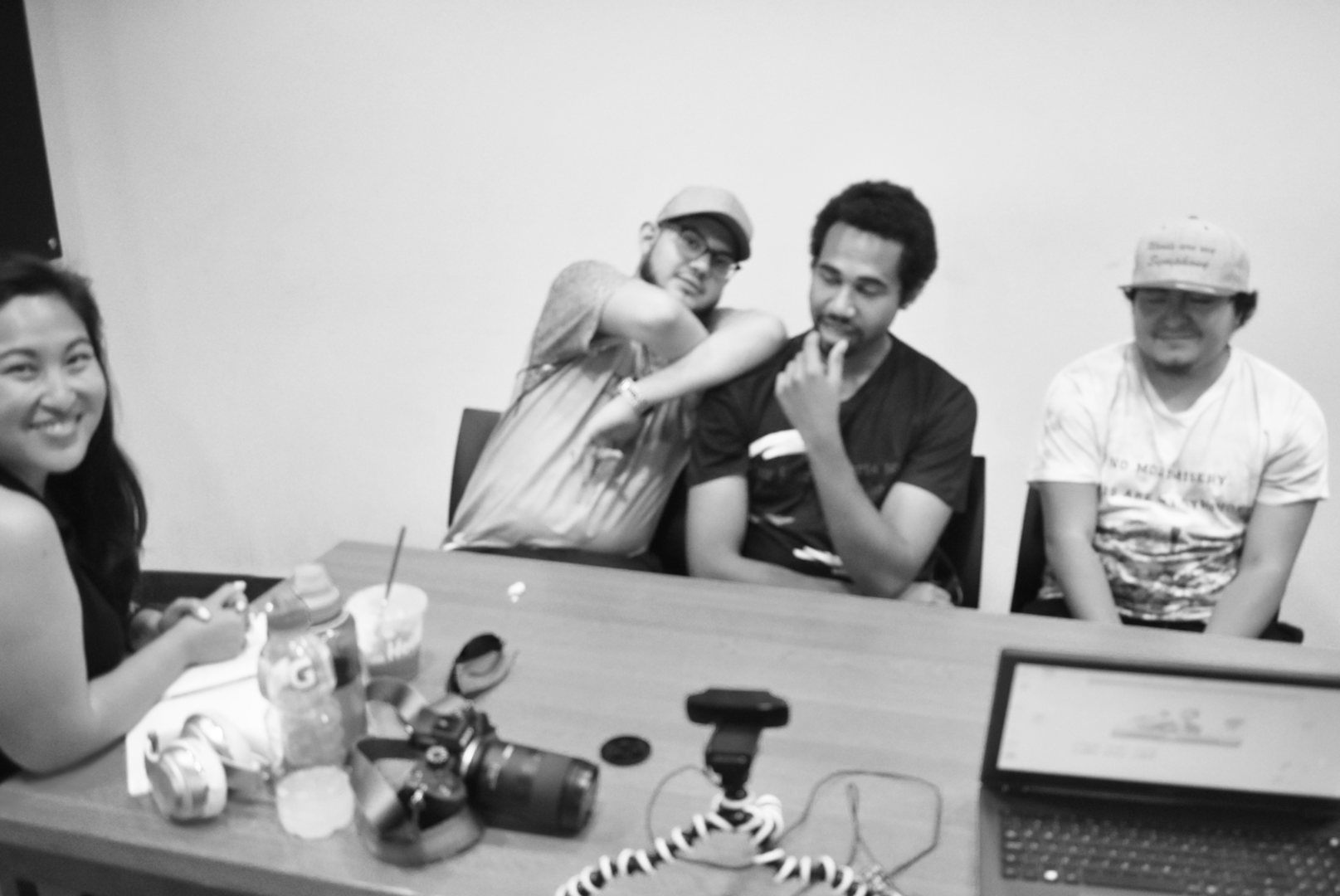
Perspectives: Mindful MCs
In our Premiere edition of Perspectives, we feature three mental health
advocates, rappers and filmmakers.
We discuss their journey, passions
and lessons with their friendship, mental health and music.
CreateBeing (CB) partnered up with these three multi-talented storytellers to create their custom t-shirts.
I asked the guys to meet me on this beautiful Thursday afternoon. The three walk in to our room with shirts that I have been staring on the computer screen for hours. It is surreal that what was just an idea is now seen in reality. We sit down and they introduce themselves.
B: My name is Bryan Bravo
M: Meshach aka MC-shackalaka, aka Mishael
H: Hernan, Words Are My Symphony,
Side note, if you ever need to be around really chill people, these are your guys. They bring a very present-mindful vibe in the room. You can’t miss it. When you are in their presence nothing else matters but this moment we share. Their simple, quick answers let’s you know that these gents speak with intention. You’ve got Bryan Bravo (B), his passion for imagery is spoken in metaphors, Meshach (M), a big picture thinker and Hernan (H), an introspective poet. These three guys are just half of the rap group, Mindful MCs. In this article you will hear about their mental health documentary, how they met and what they think about mental illness.
CB: How are your shirts?
M: Feels good
B: Comfy
CB: So I know you guys are doing this film, I’d love to hear what this film is all about and why you guys are doing it.
B: Promoting mental health, breaking the stigma, like if it was a wood piece and our hands were the words cutting it like a karate chop. Getting the word out there, with music too and art.
CB: Cool, so it sounds like you not only want to start a conversation but you also want to shake it up a bit.
(All nod in agreement)
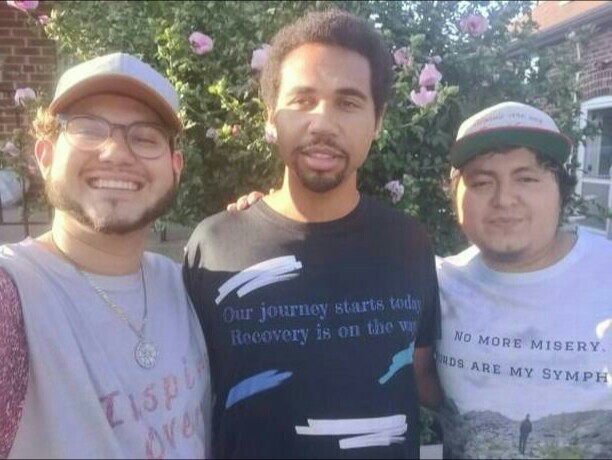
Bryan and Hernan first met when they were in high school with no relationship and reunited in later years. Bryan then met Meshach while they were preparing for performances at CMHA’s Night Of Hope. That was in 2014.
Back to their film.
M: It’s about three things: Mental Health, Friendship (our friendship in particular) and the arts…it’s about those three things and how they relate to each other.
B: It came organically, how all those three things come together.
CB: What have you learned about those three things?
H: Friendship, For the longest time, I thought I couldn’t experience real friendship because I didn’t think I could ever trust someone growing up…basically, Bryan and Meshach have shown me that I can trust people and real friendship does exist. I use to think I would be lonely for my entire life and no human would take their time to listen to me. I knew I had problems but had no idea where to go or what to do. Art and music is a tool that I have in my tool box it’s something I do all the time. I am constantly thinking of music and creating in my head. It helps me get through life.
CB: What do you do to get out of your funk?
H: If you have negative thoughts, you will feel unwell and your world becomes negative. So I say stay as positive as can be, even when things get difficult. Sometimes it gets really hard. The more attached you become with your negative thoughts the more intense it becomes and the harder it gets. I’ve found the best thing to do is to let go. It’s not easy, but let go,that’s where art and music come in. With the music and art you can let go.
M: For me, my recovery has been a long journey….being honest, this weekend I did go through a bit of depression, a little episode. What gets me out is hope. Reminding myself there are performances and these interviews coming up. I have to be well to do my best. In order to make these things happen, I do my best to focus on other thoughts to not think of negative thoughts. …doing something you enjoy like music keeps me away from negative thoughts, talking to others because what you are going through, you’re not alone and people can provide suggestions. It can be difficult if you are alone with you and your thoughts, it is a lot easier for things to get worse and get yourself into a hole. Talk to others, put yourself out there, keep yourself busy, positive self talk, positive self esteem, positive image of yourself.
CB: So, how do we get there?
M: It’s the thoughts: I’m no good, I’m unlovable, I’m a loser. Challenge those thoughts: It’s not true, I’m valuable, I’m lovable. Challenge thoughts with more realistic (and) empowering ones.
B: I used to go in front of the mirror before & look at myself (and repeat) I’m happy. I didn’t believe it even when I was saying it out loud but even in my head I said, no (and over time) it was more of a thought I can form.
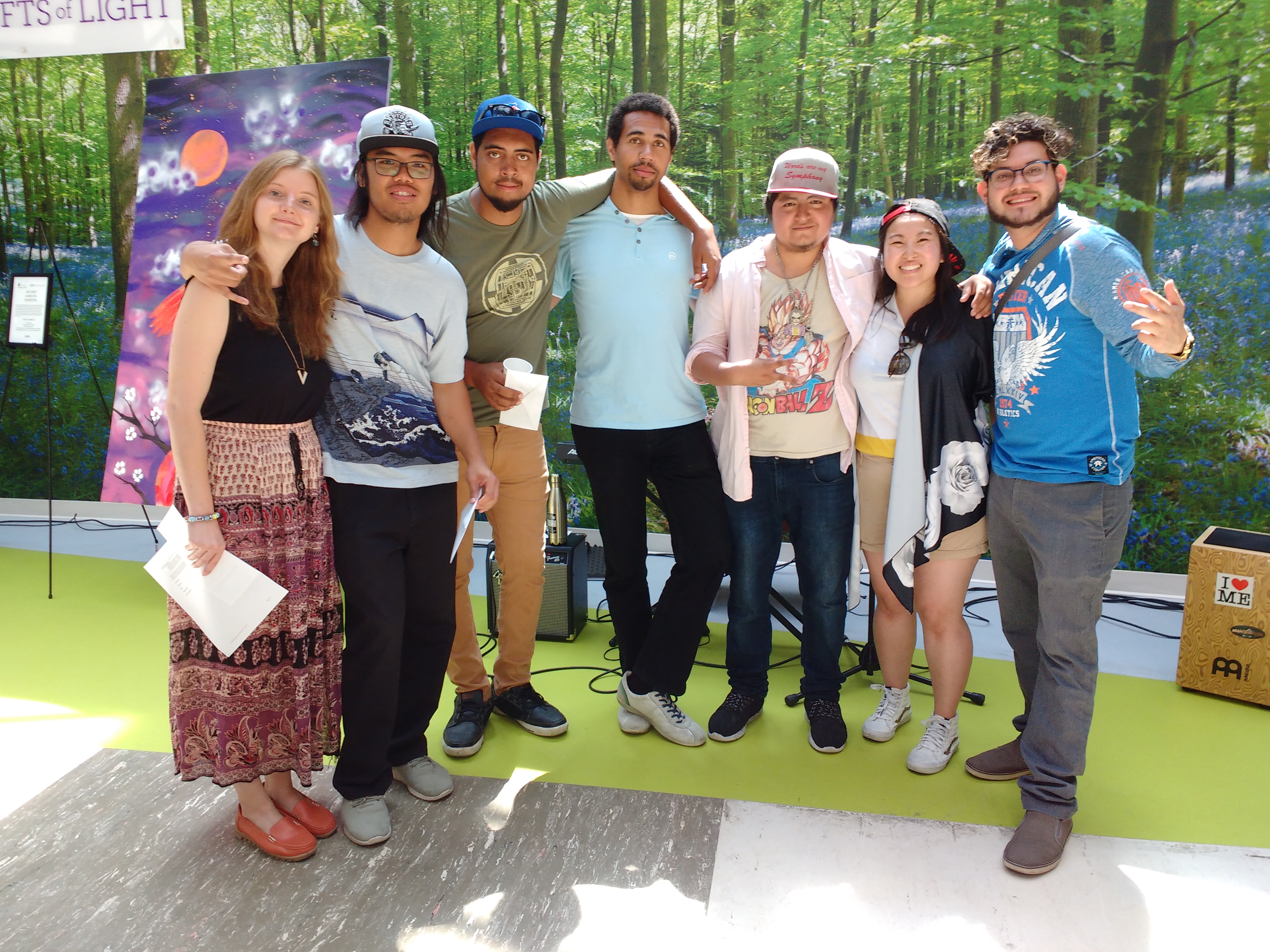
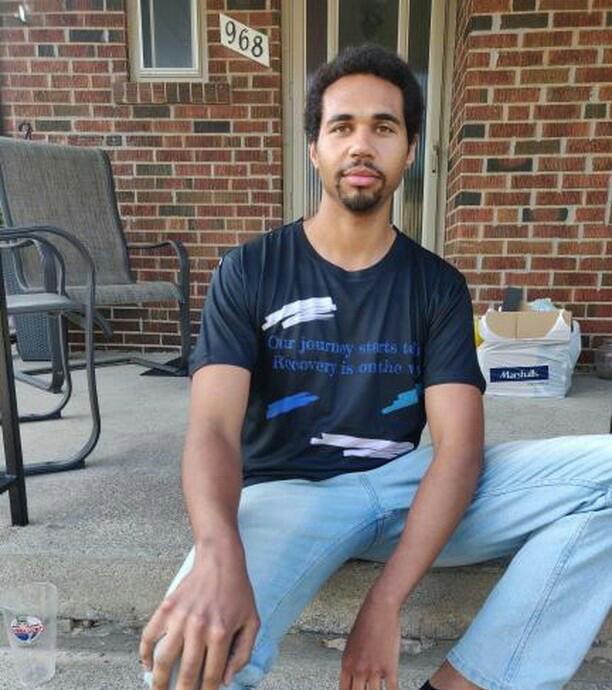
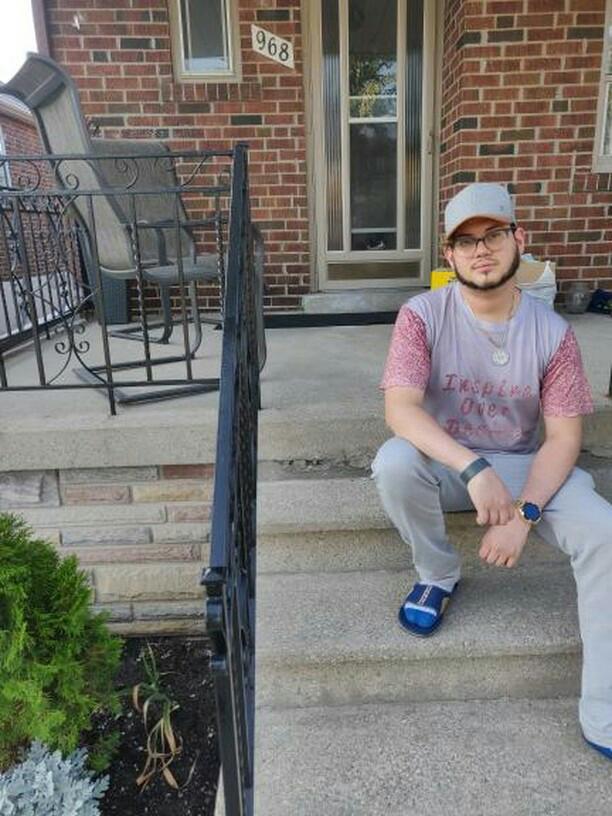
CB: Do you think your lived experience has created a bond in your friendship?
H: I feel like it definitely created a bond because we all have lived experience with mental health and addiction. We understand each other, and are able to support each other.
before I met these dudes. I felt like I could never feel comfortable with people. That that created a lot of negative emotions like sadness, anger and feelings of insecurity.
M: I agree, I’ve met a lot of people in the lived experience world and I was able to connect with them on a deeper level than with other people because of the shared experience. It just feels easy to be yourself, natural, you don’t have to hide the fact that you’re going through depression or anxiety, you can talk about it.
I asked them about their thoughts on the term mental illness.
B: The word ill itself is already putting me down. It doesn’t necessarily affect me so much but I think I wasn’t really into the mental illness or mental health until I was in the hospital and they used words I never heard of. When I was considered sick, (looked at my body and) it was good. I was considered sick I wasn’t even worried about…I checked myself in they said you have depression and psychosis…whao, what is that? What is this? When I realized, it was more complex in my head.
M: (When people think of mental illness) they think of someone who would commit acts of senseless violence, or is psychotic, but the reality with those conditions (is that you can’t tell by looking at someone if they have a mental illness). You may be able to tell by their behaviour if they are really ill, but most people who have a mental illness are good people, working on positive things. I see the term mental health applying to everyone.
H: Mental health at its worse, will make you feel paralyzed. You are unable to do everyday things.
M: People with mental illness are super unique and they have their own unique way of thinking and talents that other people don’t have. Mental illness is not all bad, I have bipolar and people with that condition have a lot of creativity and a lot of the most influential artists, musicians, a lot of geniuses flat out have mental health issues. When you use the term the word illness it’s not all bad, there are some positives. I think people have more courage these days to come out with mental health issues….The stigma still has a long way to go but I think it is being talked about more and focused on more in health care. The movement could use more funding, and more can be done to help people with mental illness and reduce stigma.
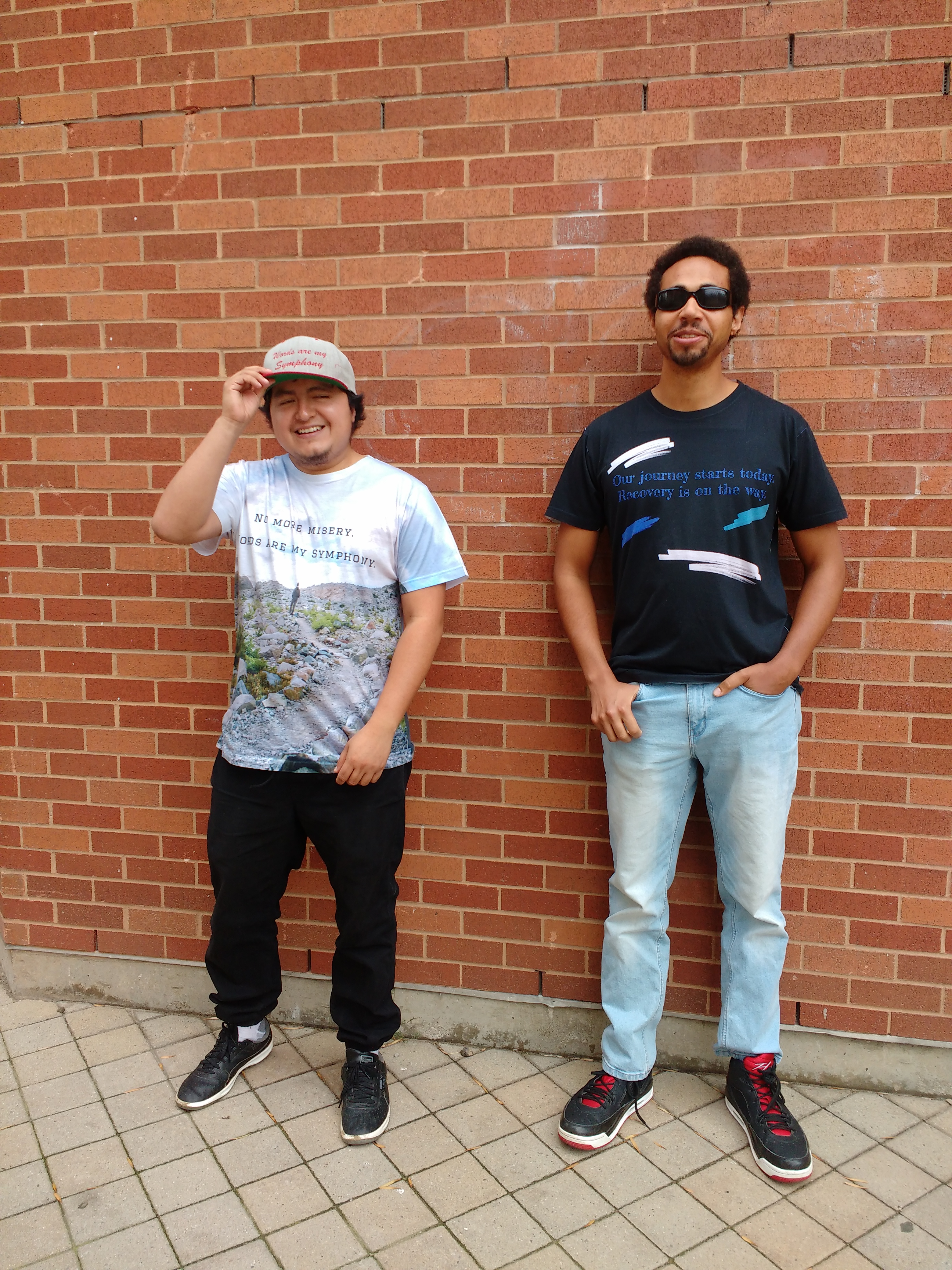
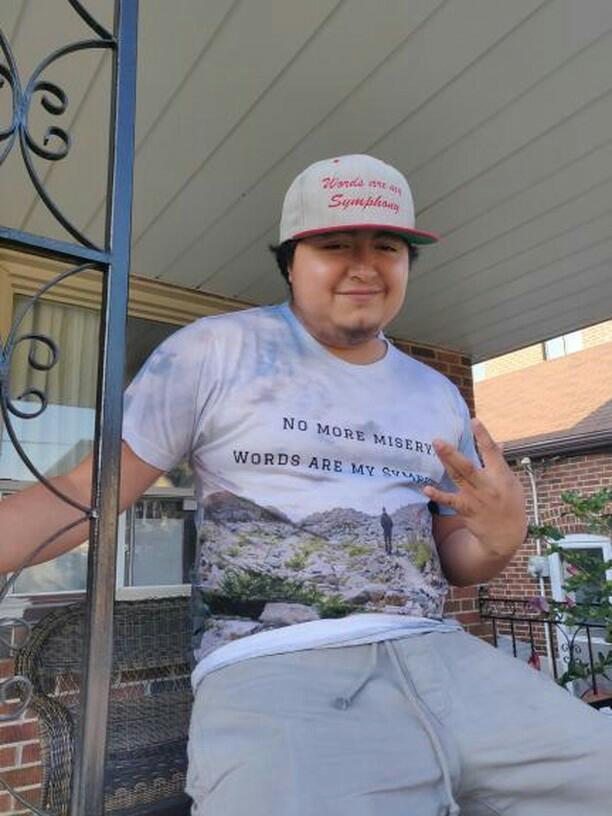
CB: What advice would you give someone going through what you did for the first time or to your past self?
B: Communication. When someone is asking if you are ok today, (be honest and say) “im not having the best day today”
M: (I) challenge my own thoughts, don’t take them too seriously, don’t get caught up in them, not isolating, be social, get out there, don’t think you have all the answers. I was at that point when I was in my early 20s, I was arrogant and wasn’t very open to learn new things. Humility is key, ask for help, be open to suggestions people would give you. Be humble and accept help from other people. Believe that people want the best for you. I distrusted health care professionals. People want to help you to move you towards your goals, they want to see you doing well and being successful.
(Also) having a good support network. Get involved with outpatient programs , like CMHA, CAMH, creating a good routine and having projects to work on helps you to stay well, they give you something to look forward to.
CB: What is coming up that you are excited about?
B: Documentary, working on a fundraiser, we’re working on a lot of stuff. Doing my photography, I love writing, I love hanging out with these guys. We can do something like that in the future, (to the other guys) wanna hang out? Do more docs.
M: This is a complete surprise to me, being a mental health advocate, I would never have thought I was going to be a part of this community when I was younger. That wasn’t the plan, I was going to be a history professor, that was the plan. I feel like there is such a negative stigma around mental health and because of the suffering that I have been through, its part of my destiny to be a voice in this community and help others. It’s (serendipitous) how things are lining up…I am a fish in water, I am where I am supposed to be.
B: Passion you really gotta be passionate, this is life. “Passionate from miles away.”
CB: Are you dropping lines?
(All laugh in agreement)

Are you searching for ways to learn mindfulness?
The best ways to learn is with an experienced teacher who can guide you
and help you deal with your extraordinary experiences.
Mindfulness teachers can help you learn mindfulness more easily using the
most ideal format for you, depending upon your personal circumstances and choices.
Thanks